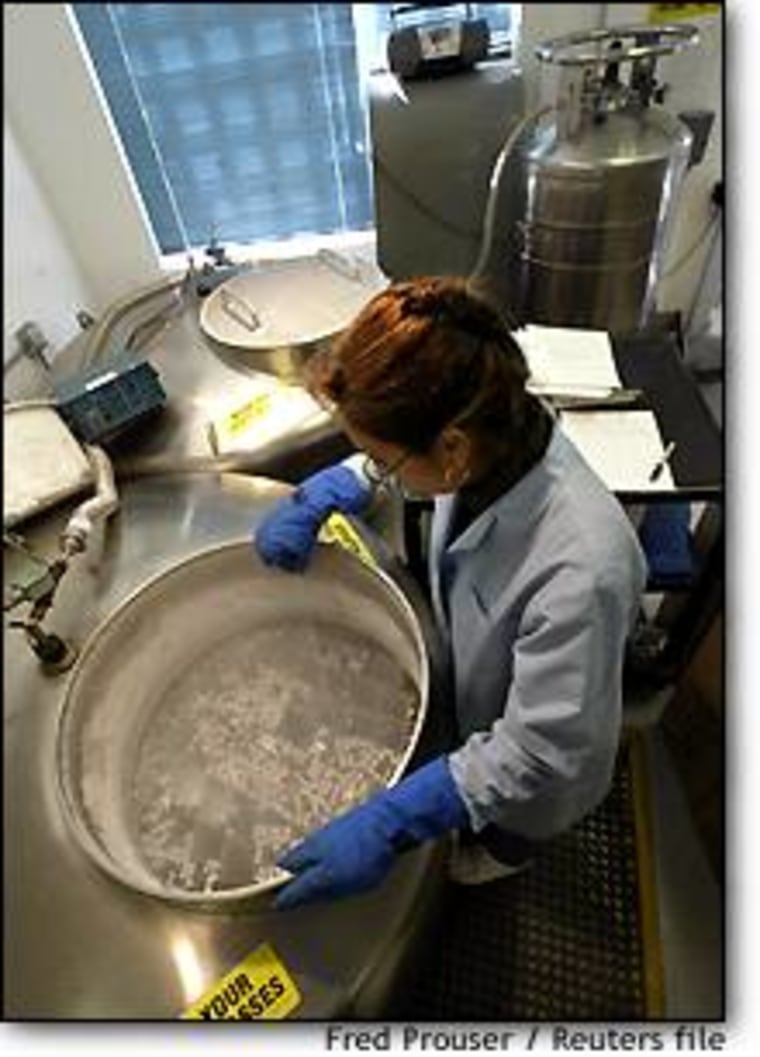When soldiers go off to battle, they’re usually told by their superiors to get their legal and financial affairs in order. No one likes to think about the possibility of not coming home, but that is the brutal reality of war. Now there’s a new twist in soldiers’ preparations for the unthinkable: Some of the men who may fight and die in Iraq are leaving deposits at sperm banks before heading overseas.
There are two main reasons why soldiers are doing this. One is obvious: If they are killed, then their wife or girlfriend will still be able to have their baby.
The other reason is fear of injury or illness. Some military personnel who served in the Gulf War believe they were made sterile by exposure to insecticides, nerve gas or other toxic substances. While there is no solid medical evidence to support this theory, some soldiers heading off for another war in the Mideast are choosing to play it safe and leave their sperm behind.
What about female troops?
Should they die or become sterile, female soldiers do not have the same option as men to preserve their reproductive abilities. While sperm are relatively easy to freeze and preserve, the same is not true for eggs since the freezing process easily damages them.
The only real option female soldiers have is to take hormones, create many eggs, have them surgically harvested and then quickly fertilized. They could then store one or more embryos, which unlike eggs, are easy to freeze.
The prohibitive cost of this procedure — tens of thousands of dollars as opposed to a few hundred dollars for sperm banking — means that taking out a biological life insurance policy is an option that is really only practical for men right now.
Ethical issues unanswered
While the practice of freezing one’s sperm before going to war has started to catch on, there are a host of ethical issues that have not been adequately addressed:
Should every male soldier be given this option? The Department of Defense routinely advises soldiers facing possible combat about the importance of having a will, but does not routinely talk about sperm banking.
Should Uncle Sam offer to pay for a soldier to store his sperm?
If sperm is banked, then what rules should govern the disposition of sperm if a soldier does not come back? Should only wives have access to the sample or should girlfriends, fiancées or even family members who might want to hire a surrogate mother?
Given that the man who made the deposit is now dead, should someone seeking to become pregnant from the sperm have to wait and think about that choice for days, weeks or even months?
How many children could legally be created from a deceased man’s stored sperm?
And how long should a deposit be stored for use — one year, 10 years, 50 years?
These are all tough questions for which there are no rules, laws or legislation, but the issues need to be addressed.
Technology now makes it possible to cheat death in ways never imagined by soldiers in previous centuries. We owe it to our troops to make sure that, should they choose to use sperm banking as an option, they will know exactly what will — and will not — happen if a tragedy forces their loved ones to make the ultimate bank withdrawal.
Arthur Caplan, Ph.D., is director of the Center for Bioethics at the University of Pennsylvania in Philadelphia.
